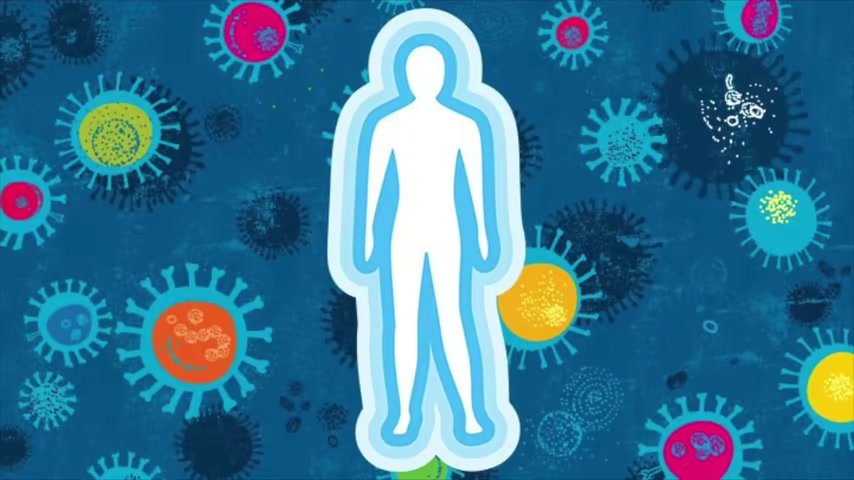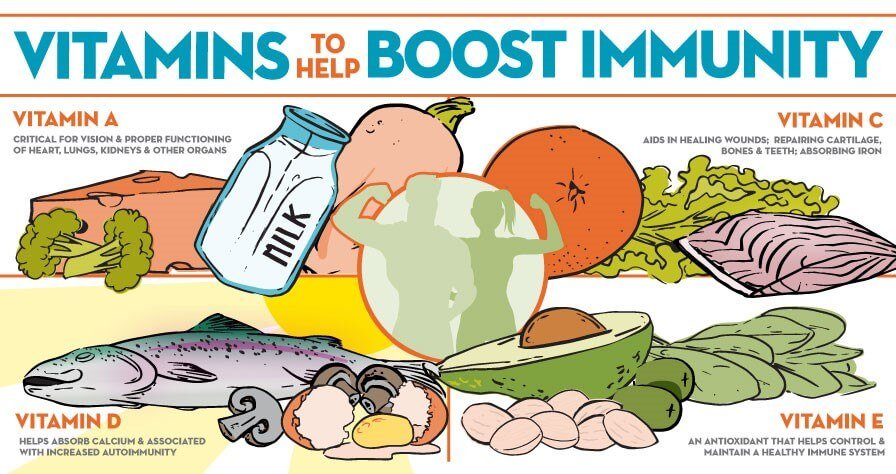Table of Contents
In this article, I want to talk to you about vitamin A and your immune system. Now, I’ve done plenty of other videos on the role of zinc, vitamin D, and vitamin C in the immune system, but I haven’t touched on vitamin A yet.
Vitamin A is an essential part of the immune system. A vitamin A deficiency will leave your body susceptible to infections—especially in the respiratory system, including your lungs, sinuses, and throat.
You need vitamin A for your mucous membranes. In particular, vitamin A is required for the creation of mucin. Mucin is an essential part of the mucus membrane.
Vitamin A is also involved in the epithelial layer and lymphatic system layer. Each of these acts as a barrier for microbes.
When pathogens enter the body, your body triggers macrophages. These are large phagocytic cells that consume pathogens and clean up other harmful debris. Macrophages are your body’s first line of defense against infection.
Your thymus gland, which is right above the heart, helps train your immune cells. The thymus can actually activate and synthesize vitamin A.
Vitamin A is also required for dendritic cells and neutrophil traps.
Why vitamin A is essential for the immune system

vitamin a is essential for your immune system .
Having a vitamin A deficiency will increase your susceptibility to getting more infections , especially in the respiratory system , both lower lungs as well as sinus and throat .
You need vitamin A for all of your mucus membranes .
Vitamin A for mucous membranes
And I’m talking about the sinuses , the mouth , the lungs , and even the gut .
Without vitamin a , you’re not gonna be able to produce the mucus membranes that you need .
The mucus membranes are an important barrier to microbes .
The microbes have a difficult time of penetrating this mucus layer , and they get stuck in there and they can’t move too well .
If a lot of your immune cells sitting there waiting , for some type of invasion , so they can actually attack and also signal the rest of the team , as they hold down the fort .

The internal skin of your body , the epithelial layer of your sinuses , your throat , and your lungs , which basically is just beneath the mucus , is highly influenced by vitamin a .
Without vitamin a , you’re not gonna have a normal , cell layer .
Also vitamin a keeps these cells together so they don’t leak or open up and allow microbes or pathogens to invade .
In your colon , you have the mucus membrane and then you have a layer of colon cells , and then you have a layer of the lymphatic system just below that , and that’s where a lot of immune reactions take place .
If you haven’t seen my video on lymph nodes , I put a link down below .
So vitamin a is needed to make something called mucin , which is a part of the mucus membrane .
It’s like a gel that is involved in your immune system .
Without vitamin a , you’re gonna have a difficult time having normal amounts of macrophages .

Vitamin A for immune cells
These are the cells that are very large and they eat microbes for dinner .
They also clean up debris and garbage .
They act as a first line of defense to hold down the fort while they send the message to the rest of the troops .
Depending on the magnitude of the battle .
If it’s a small thing they’ll pretty much take care of it by themselves , but if there’s a large attack they will call in the troops .
Your thymus gland right above the heart and it helps train your immune cells , specifically T cells which stand for thymus .
And the thymus has a capacity to activate and synthesize vitamin a .
And the reason for that is because your immune system needs Vitamin A .

Now there’s another player involved called the dendritic cell , and that cell basically takes a piece of a pathogen or a microbe and presents it to your immune system to let your immune system know if they happen to see something that resembles this , go ahead and kill it .
So they actually work between the innate and adaptive part of the immune system .
The innate is kind of a general immune protection defense .
And then you have another part of the immune system which is more specific , where you have very specific cells that are designed to kill very specific cells .
Well , the dendritic cells work between these two systems to give them information to know who to kill and who not to kill .
Also , vitamin a is involved with enhancing the neutrophil traps .
Now what does that mean ?
When you have an infection , you have like mucus and pus and inflammation .
About 70% of that infection is filled with neutrophils .
Neutrophils are part of the innate immune system that do various things to kill off invaders .
And one strategy they use is they use these little traps .
If you can envision Spider Man throwing a web over the enemy , that’s what neutrophils do .
Other vitamin A risk factors

And what they have is certain chemicals that they can inject into that pathogen as it’s in this web contained to dissolve it .
If you’re deficient in vitamin a , you your risk goes up for ulcerative colitis , MS , psoriasis , and even lupus.
When you’re low in vitamin A, your risk increases for:
- • Ulcerative colitis
- • MS
- • Psoriasis
- • Lupus
Best sources of vitamin A
But the question is what food do you get vitamin a from ?
Beef liver would be at the top of the list .
Then you have cod liver oil , mackerel , salmon , goat’s cheese , butter .
And of course I’m talking about grass fed , cream cheese , eggs .

Now vitamin a is also in the kale , broccoli , the spinach , but that would be in the pre vitamin a form carotenoids .
The active form called retinol is in all of these .
Now it is true that your body can convert carotenoids into retinol because Carotenoids are like a pre vitamin a , compound .
However , there are some great benefits of just carotenoids in general , for vision , as an anti inflammatory , as an antioxidant
How can you get more vitamin A?
The best source of vitamin A are:




